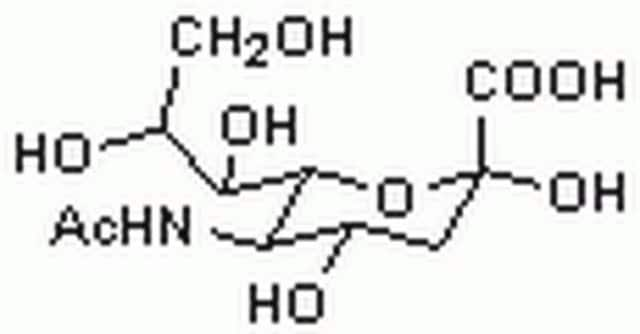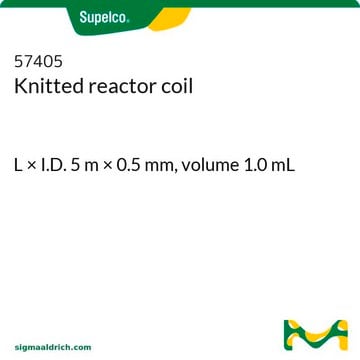D4784
4,5-Methylenedioxy-1,2-phenylenediamine dihydrochloride
≥98% purity (HPLC), powder
Sinónimos:
1,2-Diamino-4,5-methylenedioxybenzene dihydrochloride, 1,3-Benzodioxole-5,6-diamine dihydrochloride, 5,6-Diamino-1,3-benzodioxole dihydrochloride, MDB
About This Item
Productos recomendados
product name
4,5-Methylenedioxy-1,2-phenylenediamine dihydrochloride, Fluorogenic reagent
Quality Level
assay
≥98% (HPLC)
form
powder
technique(s)
titration: suitable
color
white to orange
mp
247 °C
solubility
H2O: 50 mg/mL
application(s)
diagnostic assay manufacturing
hematology
histology
storage temp.
−20°C
SMILES string
Cl[H].Cl[H].Nc1cc2OCOc2cc1N
InChI
1S/C7H8N2O2.2ClH/c8-4-1-6-7(2-5(4)9)11-3-10-6;;/h1-2H,3,8-9H2;2*1H
InChI key
YXEJRYIEFFUUID-UHFFFAOYSA-N
¿Está buscando productos similares? Visita Guía de comparación de productos
Categorías relacionadas
General description
Application
signalword
Warning
hcodes
Hazard Classifications
Eye Irrit. 2 - Skin Irrit. 2 - STOT SE 3
target_organs
Respiratory system
Storage Class
11 - Combustible Solids
wgk_germany
WGK 3
ppe
dust mask type N95 (US), Eyeshields, Gloves
Elija entre una de las versiones más recientes:
¿Ya tiene este producto?
Encuentre la documentación para los productos que ha comprado recientemente en la Biblioteca de documentos.
Los clientes también vieron
Artículos
A significantly improved HPLC-fluorescence method for DMB-NANA and -NGNA, and application of this method to compare 2 candidate biosimilar therapeutic proteins to their respective RMs.
A significantly improved HPLC-fluorescence method for DMB-NANA and -NGNA, and application of this method to compare 2 candidate biosimilar therapeutic proteins to their respective RMs.
A significantly improved HPLC-fluorescence method for DMB-NANA and -NGNA, and application of this method to compare 2 candidate biosimilar therapeutic proteins to their respective RMs.
A significantly improved HPLC-fluorescence method for DMB-NANA and -NGNA, and application of this method to compare 2 candidate biosimilar therapeutic proteins to their respective RMs.
Nuestro equipo de científicos tiene experiencia en todas las áreas de investigación: Ciencias de la vida, Ciencia de los materiales, Síntesis química, Cromatografía, Analítica y muchas otras.
Póngase en contacto con el Servicio técnico












